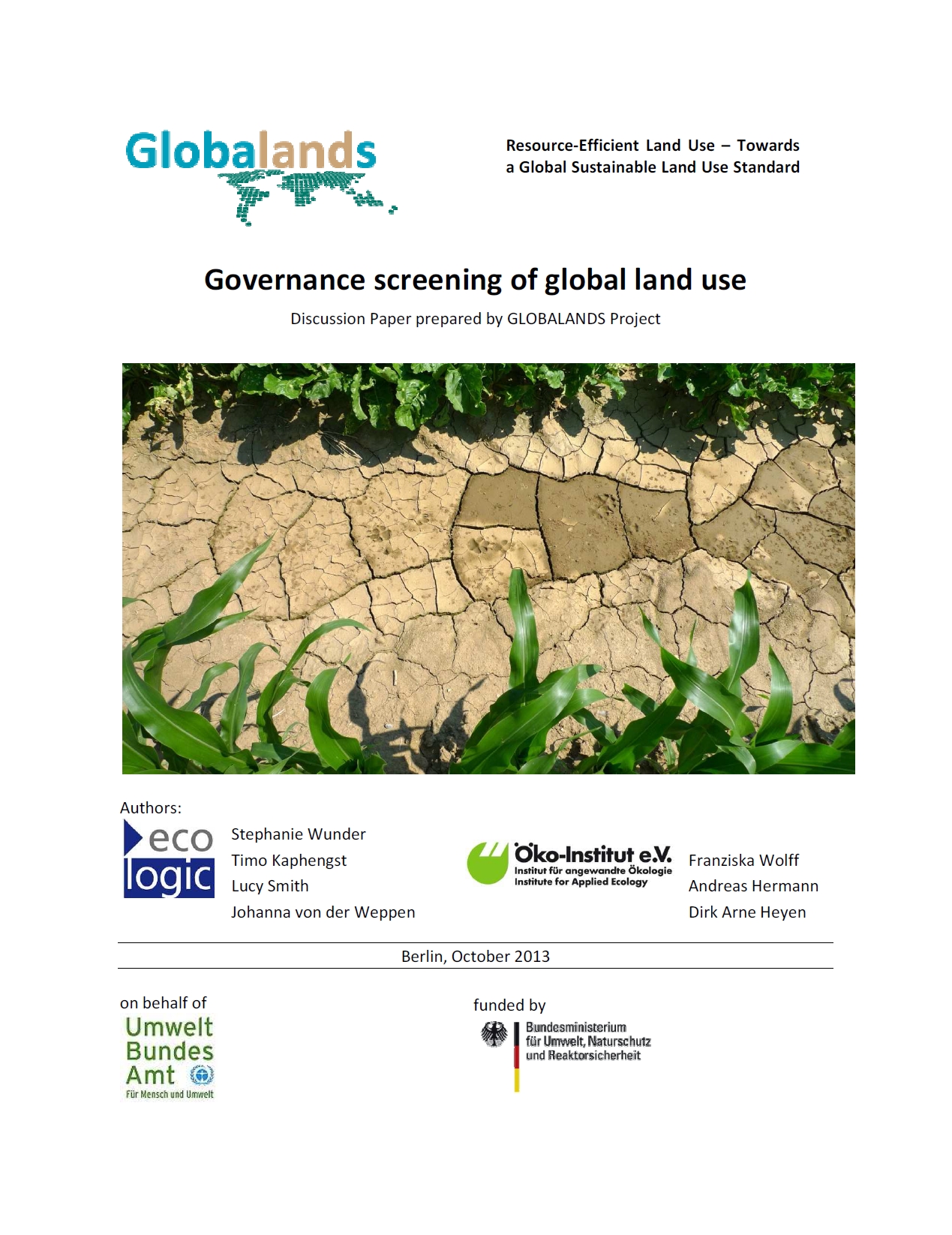Governance Screening of Global Land Use
Discussion Paper prepared by GLOBALANDS Project
- Publication
- Citation
Wunder et al (2013): "Governance screening of global land use", discussion paper produced within the research project "GLOBALANDS – Global Land Use and Sustainability", authors: Wunder, Stephanie; Hermann, Andreas, Heyen, Dirk Arne; Kaphengst, Timo, Smith, Lucy, von der Weppen, Johanna, Wolff, Franziska; Berlin, Ecologic Institute and Öko- Institute, October 2013
Researchers of the project "GLOBALANDS – Global Land Use and Sustainability" have published a comprehensive governance screening analyzing the most relevant international policies with a high impact on global sustainable land use. The report further identifies current "windows of opportunity" to strengthen sustainable land use through international policies. The work was carried out by Ecologic Institute and the Öko-Institut, led by Stephanie Wunder, Senior Fellow at Ecologic Institute.
In the paper "Governance screening of global land use", the project partners in GLOBALANDS screen and analyze international policies, which have the potential to generate high sustainability impacts on global land use. For each international policy field, the most relevant policies are analyzed in relation to their objectives, mechanisms, and (estimated) relevance for sustainable land use. The analysis provides an overview as to how the specific policy influences land use and thereby provides insights into opportunities and barriers for a more sustainable land use worldwide.
The screening goes beyond the main land use related sectors, such as agriculture and forestry, and includes policies from diverse sectors and subjects that have an important impact on large areas of land, even if the impacts are indirect and not intended by the specific policies (e.g., trade and investment policies). "Windows of Opportunity" for future action on the international policy level are identified (e.g., implementation of the Voluntary Guidelines on the Responsible Governance of Tenure of Land, development of Sustainable Development Goals, further development of climate policies/ REDD+, etc.).
The screening also finds that current international policies do not address some of the most significant drivers of unsustainable land use (either not effectively or not at all), such as population growth, increasing consumption and (western) diets.
In total, more than 120 international policies are analyzed. The analysis provides a thorough overview of policies at the international/global level as well as the EU level. In addition, ten national case studies provide further insights into different land-related policies (Brazil, Bolivia, Argentina, Cuba, Kenya, Niger/Burkina Faso, India, Australia, Belgium, and Germany).
The report (PDF, 2.8 MB, English) is available for download.




